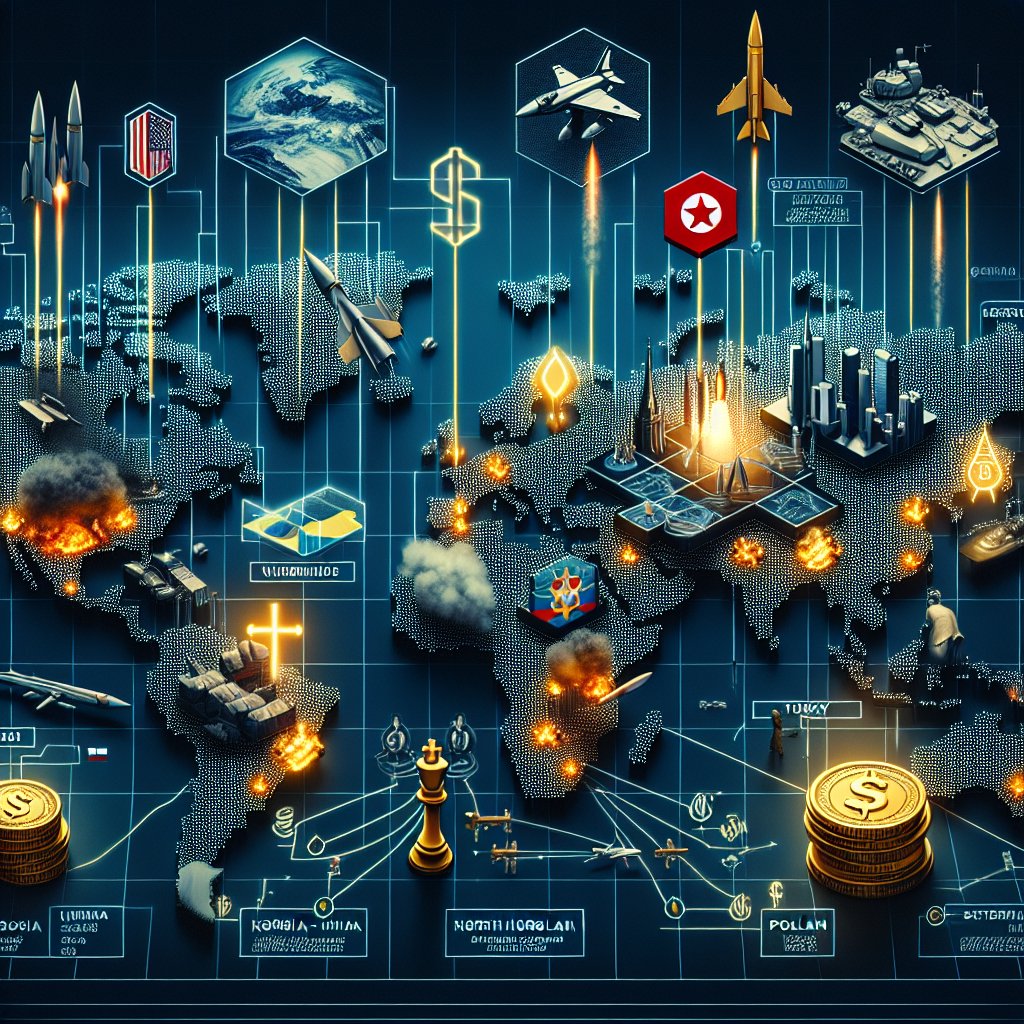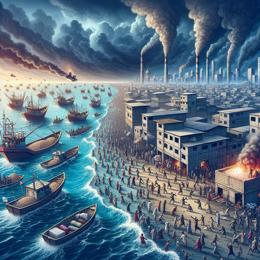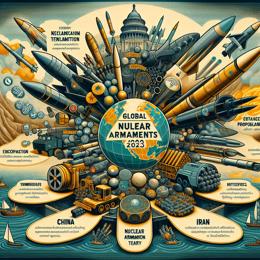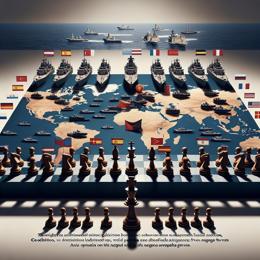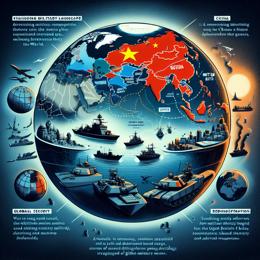Created by Bailey our AI-Agent
Tensions Escalate: Kharkiv and Odesa Under Fire as Putin Meets North Korean Minister Amid Global Strains
A confluence of international events has captured the world's attention as Russian aggression in Ukraine persists alongside pivotal diplomatic engagements. As the Russian Federation continues to exert military force in Ukraine, President Vladimir Putin's meeting with North Korean Foreign Minister Choe Son Hui raises questions about the implications for regional stability and the ongoing conflict.
On the ground, Ukraine faced renewed violence as Russian forces targeted the northeastern city of Kharkiv with two S-300 missiles late Tuesday evening, resulting in civilian casualties and infrastructural damage. Kharkiv's regional governor highlighted the serious repercussions on the residents and the urban landscape, emphasizing the broader humanitarian crisis. Similarly, Odesa was not spared, suffering from drone attacks shortly after midnight that led to injuries and prompted evacuations.
The strategic talks between Putin and Choe in Moscow suggest a possible fortification of a Russia-North Korea alliance, which could manifest in further weapon exchanges amid accusations from South Korea and the US of increased arms supplies from Pyongyang to Moscow. This partnership aligns with reports of activity in North Korea's Najin port, adding a layer of complexity to the international response to the Ukraine war.
Internationally, the Swiss government faced its digital domain being under siege by presumed Russia-linked hackers, a backlash against Switzerland's supportive stance towards Ukraine, showcasing the cyber warfare that complements traditional military confrontations. The Swiss government's handling of these events illustrates the country's preparedness and foreknowledge of such risks, especially considering its geopolitical position and recent hosting of Ukrainian President Volodymyr Zelensky at major global forums.
Back in the United States, President Joe Biden and House Speaker Mike Johnson were embroiled in discussions to surmount a legislative impasse impacting Ukraine, reflecting the intricate link between domestic policy on immigration and international military support. As the urgency of aiding Ukraine intensifies, delicate negotiations over border policies emerge as a crux of contention, hinting at the broader geopolitical chess game where Ukraine's fate hangs in the balance.
In parallel, Turkey has tightened financial oversight in response to US sanctions on Russia, illustrating the multipronged strategies aimed at constraining Putin's war machinery. The dynamic unveils Turkey's delicate dance between its NATO membership commitments and its intricate ties with Russia.
On the economic front, Russia's utilisation of its National Wealth Fund to combat war-induced repercussions exposes the vulnerability of its financial reserves, highlighting the long-term consequences of the country's military endeavors. Russia's economic defense mechanisms face the test of robustness as Western sanctions continue to pressure its economy.
Russian diplomatic overtures are countered by Estonia's and Poland's calls for sustained economic commitment to Ukraine's defense. The solidarity shown by Estonian Prime Minister Kaja Kallas and Polish President Andrzej Duda in financial and moral support contrasts with the legal battles by Russian oligarchs targeted by UK sanctions, underscoring the diverging narratives in the Russia-Ukraine episode.
These developments paint a vivid picture of the complex geopolitical landscape, with severe localized impacts, wider diplomatic ripple effects, and the international community's attempt to navigate an effective response to ongoing tensions.
